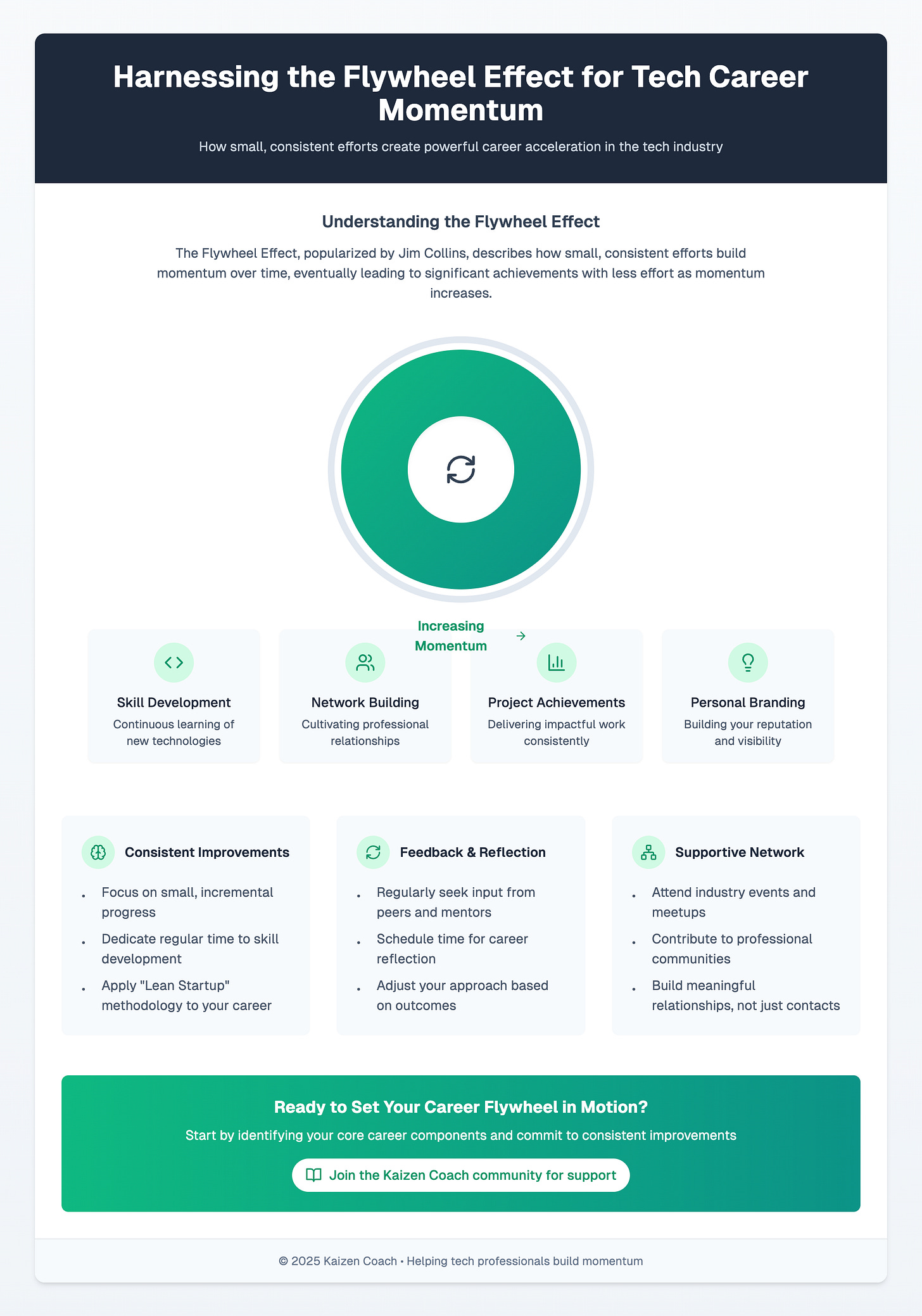Harnessing the Flywheel Effect for Tech Career Momentum
Discover how leveraging the Flywheel Effect can propel your career forward in the tech industry with strategic actions and insights from business thought leaders.
Understanding the Flywheel Effect
The Flywheel Effect, a concept popularized by Jim Collins in his book 'Good to Great', describes how small, consistent efforts can build momentum over time, eventually leading to significant achievement. In the tech industry, where rapid innovation and competition are constant, understanding and applying the Flywheel Effect can be transformative for your career. Imagine your career as a flywheel: initially, it takes a considerable amount of effort to get it moving. But as you continue to push in the right direction with focused effort, your career gains momentum and begins to accelerate on its own.
Identifying Your Career Flywheel Components
To harness the Flywheel Effect, start by identifying the core components of your career that require consistent effort. These components might include skill development, network building, project achievements, and personal branding. For example, if you're a software developer, your flywheel components might consist of mastering new programming languages, contributing to open-source projects, and expanding your professional network by attending tech meetups or conferences.
Focusing on Consistent, Incremental Improvements
Once you've identified your flywheel components, focus on making small, incremental improvements consistently. This approach is akin to the 'Lean Startup' methodology, where continuous iteration leads to meaningful progress. For instance, dedicate a set amount of time each week to refine your coding skills or learn a new technology. These small improvements may seem insignificant initially, but over time, they compound to propel your career forward.
Leveraging Feedback and Reflection
Feedback is a critical driver of the Flywheel Effect. Regularly seek feedback from peers, mentors, or supervisors to ensure your efforts are aligned with your career goals. Additionally, make time for reflection to assess what’s working and what needs adjustment. For example, if you're a product manager, after each project phase, gather input from your team and stakeholders to identify areas for improvement and celebrate what went well. This iterative feedback loop keeps your flywheel spinning effectively.
Building a Supportive Network
A supportive network acts as a lubricant for your career flywheel, reducing friction and helping it spin faster. Cultivate relationships with colleagues, mentors, and industry leaders who can provide guidance and opportunities. Networking is not just about connecting with people but also about building meaningful relationships that contribute to your career growth. Attend industry events, engage in online forums, and actively participate in professional groups to expand your network.
Ready to set your career flywheel in motion? Start by identifying your core career components and commit to consistent, incremental improvements. Share your progress and join the Kaizen Coach community for further insights and support!


